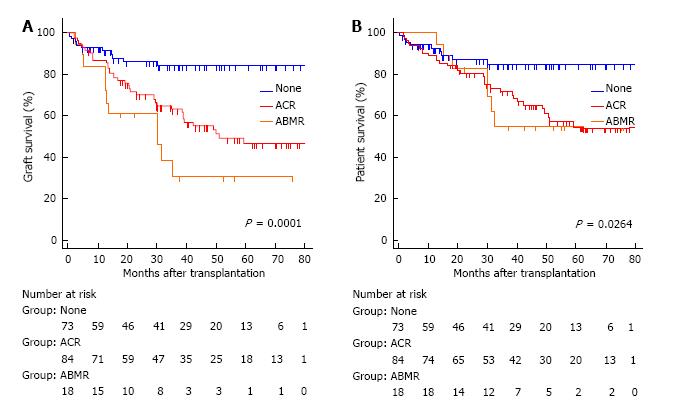Copyright
©The Author(s) 2016.
World J Transplant. Dec 24, 2016; 6(4): 719-728
Published online Dec 24, 2016. doi: 10.5500/wjt.v6.i4.719
Published online Dec 24, 2016. doi: 10.5500/wjt.v6.i4.719
Figure 3 The Kaplan-Meier graft (A) and patient (B) survival for no acute rejection (none) (solid line), acute cellular rejection (dotted heavy line), and acute antibody-mediated rejection (dotted light line).
The overall comparison was significantly different in graft (log-rank P = 0.0001) and patient survival (log-rank P = 0.0264). The patients with antibody-mediated rejection (ABMR) or acute cellular rejection (ACR) had significantly lower graft and patient survival than those without rejection. The graft survival was worse in ABMR than in ACR but the differences between them did not reach statistical significance (P = 0.088).
- Citation: Wu GS, Cruz Jr RJ, Cai JC. Acute antibody-mediated rejection after intestinal transplantation. World J Transplant 2016; 6(4): 719-728
- URL: https://www.wjgnet.com/2220-3230/full/v6/i4/719.htm
- DOI: https://dx.doi.org/10.5500/wjt.v6.i4.719









